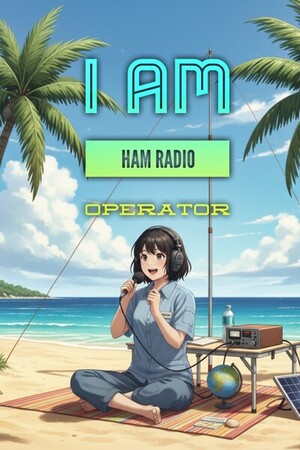Chapter 5:
Intermission 1
Sundown Void
Far above the skies, past the quiet hum of the living quarters and the sterile order of the laboratories, the restricted zone of the floating fortress buzzed with an electric intensity. Here, beneath the polished floors and the gleaming façades, plans were brewing—plans that held the fragile remnants of humanity’s future in their grasp.
The chamber was a symphony of light and motion, with holographic projections cascading from the high, arched ceilings like waterfalls of data. Each strand of light pulsed with urgency, the glow casting soft patterns on the obsidian table at the center. Around it sat the world’s most powerful remnants—leaders who had once commanded nations, now reduced to strategists in this artificial sky.
High Chancellor Elias Volkov stood at the helm, his presence magnetic and unyielding. He towered over the table, his deep-set eyes scanning the projections with a sharp, calculating glint. Though the sun’s explosion had taken much from the world, it had given him one thing in return: control.
“The artificial sun’s construction is ahead of schedule,” a woman to his left reported, her voice clipped and efficient. Her holographic display shifted to show schematics of the glowing core that would soon replace what humanity had lost. “We estimate full functionality within six months, provided resources remain steady.”
“And what of the dissenters?” Volkov asked, his tone calm but carrying the weight of unspoken authority. “The ground-dwellers who believe they’ve been abandoned?”
A younger man to his right frowned, adjusting his glasses nervously. “We’ve seen an increase in unauthorized supply drops from within the fortress,” he admitted. “Someone is funneling resources to the surface. If this continues—”
“It won’t continue,” Volkov interrupted smoothly, his voice cutting through the room like a knife. “Ensure that it doesn’t. Whoever is responsible for these… acts of charity must be reminded of their place. We cannot afford compassion.”
The room fell silent, the only sound the faint hum of the projections. Volkov leaned forward, his hands resting on the table. “The survival of our species depends on discipline and sacrifice,” he said, his voice rising just enough to command absolute attention. “The sun is gone. The weak will perish. That is the price of progress.”
The room nodded as one, a collective surrender to his iron will. But beyond the restricted chamber’s closed doors, unseen and unyielding, someone was already working to challenge that doctrine—someone who believed the weak still deserved a chance.
Volkov’s words settled into the room like a stone dropped into still water, rippling through the minds of those assembled. It wasn’t just the weight of his conviction that demanded their attention—it was the undeniable truth in his argument. Humanity had failed itself before the sun’s explosion; the collapse had only hastened what was already crumbling.
Yet, for all his commanding presence, not everyone was swayed.
President Amara Solano leaned back in her chair, her sharp eyes narrowing as she considered Volkov's words. “You speak of unity, High Chancellor,” she said, her tone precise, almost surgical. “But unity enforced by fear is a fragile thing. People don’t forget the hands that wield the chains.”
Volkov inclined his head slightly, a shadow of a smirk playing at his lips. “Fragile, perhaps. But the alternative is chaos. Tell me, President Solano, do you believe the masses outside these walls would survive without our guidance? Without the discipline we bring?”
“I believe,” Amara replied evenly, “that history is littered with the ruins of regimes built on ‘guidance.’ You may call it structure. They will call it tyranny.”
A low murmur rippled through the room as Volkov’s expression cooled. He stepped away from the table, clasping his hands behind his back as he began to pace. “Tyranny,” he repeated, his voice almost a whisper. “A word thrown around so carelessly. And yet, what is tyranny, if not the desperate act of the weak to preserve themselves?”
He turned sharply, his gaze sweeping over the assembly. “Make no mistake: humanity is weak. The sun’s death has proven that. Our species was on borrowed time long before the explosion—this, my dear Amara, is our reckoning. Do not mistake it for anything less.”
At the far end of the table, King Alaric cleared his throat, his silver hair glinting in the holographic light. “And yet, Chancellor, you propose a world in which survival is reserved only for those who submit to your vision. What of those who resist? Will you starve them? Hunt them? Kill them?”
Volkov’s expression didn’t waver, his voice steady and unwavering. “If it comes to that, yes. For every rebellion, there is a price. But resistance is the privilege of those who believe they have a choice. The truth is, my friends, there is no choice. Not anymore.”
The room fell into a heavy silence once again, the leaders exchanging uneasy glances. Beneath their polished exteriors, cracks of doubt began to show. For all Volkov’s conviction, there was an undeniable darkness in his vision—a vision that some would follow willingly, and others would fight tooth and nail to resist.
Unbeknownst to Volkov, the resistance was already taking shape. Within the fortress, in the shadowed corners and forgotten passageways, whispers of dissent spread like wildfire. People who had been overlooked, underestimated, or simply cast aside were beginning to unite under a shared goal: to undermine the Chancellor’s iron grip before it could solidify.
At the heart of the resistance was an unlikely alliance—scientists, engineers, and ground-dwellers who had found their way aboard the fortress. Among them was a boy with an unquenchable fire in his heart, who believed in a future shaped not by fear, but by hope. And while Volkov prepared to reshape humanity in his image, this boy quietly worked to ensure that the world wouldn’t belong to the strong, but to the kind.




Please sign in to leave a comment.